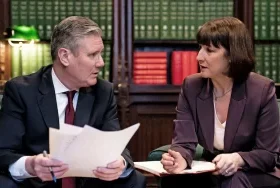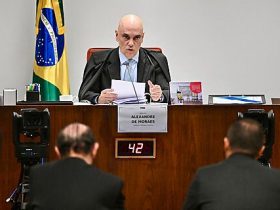David Inserra
I wanted to address some criticism my misinformation paper received (and thanks to Mike Masnick for discussing this disagreement in a thoughtful, even-handed way). The critique makes a few arguments that I want to respond to because while we have differences, I think there are also some points of agreement.
First is the criticism that I get stuck on definitional challenges with misinformation rather than simply adopting Claire Wardle’s definitions and “mov[ing] beyond vague fears and examin[ing] the different forms that harmful information can take.” Notably, my paper does indeed include Wardle’s definitions in the academic table of the many definitions of misinformation available.
This is because my contention is not just that definitions vary but that this commonly held definition — that misinformation is false or misleading information shared by people who believe it is true — is hopelessly subjective and difficult to study or create government policies to handle. “Misleading” content differs from person to person. Critics may find my piece misleading, and I may find their critiques misleading. Per this definition, both could be classified as misinformation. But that seems neither accurate nor useful.
Under this definition, countless examples of journalism, academic research, and other forms of communication might fairly be labeled as misinformation because of how a story is framed, what evidence is included or excluded, how someone expresses their opinions or policy positions, etc., or any other array of imperfections that exist in natural human communication’s inevitable subjectivity and necessary choices. By including “misleading” speech, the misinformation definition covers an almost immeasurable amount of speech, much of which is just speech that a given person disagrees with.
Another criticism is that I have disregarded the “disordered” nature of our discourse—“systems of belief that reinforce themselves, reject correction, and disconnect people from any shared standard of reality.” Such critics worry about “entire communities that can become locked into belief systems” with a “collapse in collective reasoning.” In this world, “truth becomes tribal. Institutions become hollow.”
My critics and I do not disagree as much as they may believe we do. I agree, and my paper notes that research shows that misinformation is most often believed by those who are already predisposed to believe it, especially partisans who believe news that fits their narrative because it’s “too good to check.” But where we disagree is whether misinformation is the driving force behind political or societal discord. The research referenced in my paper suggests to me that misinformation is a symptom of disordered discourse, not the cause. People are tribal, and people love to see their biases confirmed. But people are also complex, and most don’t immediately believe something just because they see it online. Research consistently struggles to show how exposure to information causes people to change their beliefs or engage in some behavior.
So yes, it’s my view that the panic over misinformation itself is overwrought when we should instead be focused on rebuilding a free society that can counter the disordered discourse through more civil discussions and informed debate.
This leads to the last major criticism: that my view of how we develop truth or knowledge is shallow or wrong. Critics discount the “neutral marketplace of ideas” and view my trust in the individual and the market as abandoning individuals to bad actors who will ultimately turn into “a shouting match. Or worse, a battlefield.”
I do not think we disagree completely. I spent the last part of my paper discussing Jonathan Rauch’s work on how our society needs a system of liberal inquiry to sort through different views and truth claims. I think where we disagree is that I do not believe we should give so much deference to truth claims made by experts, authorities, and institutions, which face near historic lows in trust. As I discuss in my paper, I think experts have gotten significant things wrong (or at least debatably wrong) in recent years, ranging from claims of Russian disinformation to various COVID-19 issues. Even if the frustration with institutions is highly politicized and they get most things right, the answer to misinformation cannot just be “well, trust the experts,” if we want it to actually reach those who hold the experts in disdain.
Going deeper, the internet has upended the traditional gatekeepers of knowledge just as the printing press did. Gone are the days when Americans all got their news from Walter Cronkite. Experts have knowledge and experience that we should value, but only when it is open to criticism and challenge because those experts (myself included) can be flawed and biased.
I don’t deny that this moment is disruptive, but the benefits of a massive increase in expression and information outweigh the negatives. The disruptive new opportunities for expression can be hugely beneficial to voices that were often marginalized or unseen by these gatekeepers and can paint a fuller picture of what is going on in our society.
And ultimately, some of our disagreements are rooted in ideological differences over the role of the government and different views of freedom and liberty. It should surprise no one that classical liberals and libertarians are uniquely concerned with the threat of government power. We stand at a particularly polarized moment in which we see increasingly authoritarian actions around the globe and a decline in liberal values on both sides of the political spectrum. In this moment, some have explicitly endorsed the idea that governments should police speech to defend democracy.
Some have argued that more must be done to handle misinformation by pointing to 20th-century philosopher Isaiah Berlin’s contrast between positive liberty—the view that an individual must be free to achieve self-mastery to fully and rationally participate in society—and negative liberty—the view that individuals merely ought to be free from coercion by other individuals and the state. But Berlin himself warned that positive liberty “has, in fact, and as a matter of history, of doctrine, and of practice, lent itself more easily” to manipulation to justify domination and tyrannical government power. So, my emphasis on free markets and individuals and resistance to views that might give more power to the state seems well justified.
Ultimately, critics and I agree that our society needs a way to engage in meaningful discussion, debate, and the development of knowledge. My research suggests that we need not panic over misinformation but instead empower individuals, trust in greater expression and the marketplace of ideas, and insist on robust challenges and debate within the process of liberal inquiry as the best way for our society to flourish.










